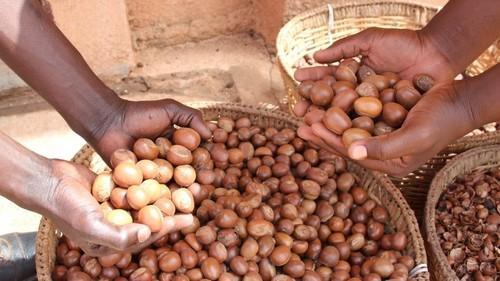The shea nut industry of Nigeria is rebounding sharply following an early downturn caused by the Federal Government’s action to prohibit the export of raw shea nuts.
With local processors demanding more local supply, market indicators now point toward growing optimism and soaring costs.
Shea nuts sold for an average of about N850 per kilogram before the restriction. The news temporarily shocked the market, causing prices to fall by around 33 percent to N570 per kilogram as dealers and middlemen tried to adapt. But fresh action from regional producers has lately rejuvenated the market. Prices had returned to between N710 and N800 per kilogram by mid-September, and as of this week the average price has topped about N1,000 per kilogram, almost 18% over pre-ban levels.
The rebound points to increasing faith in the Nigeria First Economic Policy of President Bola Ahmed Tinubu, which emphasizes domestic value addition over raw exports. Although Nigeria produces more than one-third of all shea nuts, the country has historically earned under one percent of the $6.5 billion global shea market since most exports went unrefined.
The News Chronicle observed that many of the over 20 shea processing factories that were running under 30% capacity are now being restored by the recent export ban. These facilities may now run more effectively, preserve jobs, and foster closer ties across the value chain—from rural farmers to industrial processors—by keeping raw materials in-country. For women-led cooperatives that predominate shea nut collection in rural areas, this also offers improved income.
Including the Nigeria Agribusiness Group, industry insiders have commended the policy for stabilizing prices and facilitating long-run investment planning. They contend that the earlier unrestricted export environment fueled price volatility and starved local manufacturers of raw materials. The new restrictions let processors expand activities and develop a more resilient value chain.
Sponsored by the Raw Materials Research and Development Council (RMRDC) and approved by the Senate in July 2025, the project fits very well with the 30 percent Value Addition Bill. Under the measure now under consideration by the House of Representatives, no Nigerian raw material may be exported without at least 30 percent local processing.
Together with the Presidential Food Systems Coordinating Unit (PFSCU), the Federal Ministry of Industry, Trade and Investment is organizing follow-up events and doing To guarantee smooth policy implementation and ongoing market expansion national assessments in the five top shea-producing states.



